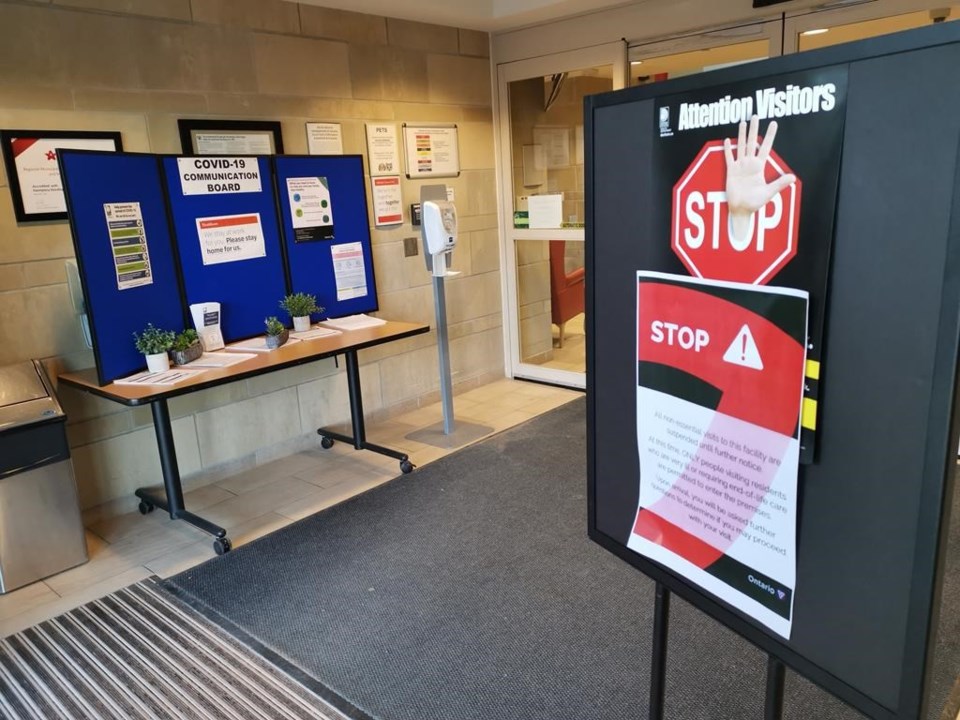While pressure builds on the Ontario government to develop a vaccine passport program, local businesses are looking at how they might safely re-open.
“It’s going to come down to a personal decision in a lot of cases,” said Paul Markle, executive director of the Barrie Chamber of Commerce. “With the lack of leadership or provincial leadership on the issue, businesses are going to start taking things into their own hands. There’s a risk involved in that because there’s human rights issues there.”
This week Seneca College announced that students and staff will be required to have COVID-19 vaccines to be on campus. A Toronto strip club is also making vaccinations mandatory for staff and customers.
Georgian College isn’t following suit, although it is encouraging all students and employees to get vaccinated as early as they’re eligible, according to a spokesperson.
The federal government indicated it is moving toward a system for an "internationally accepted proof of vaccination" for international travel.
Barrie Mayor Jeff Lehman said a passport or some other solution should be developed in Ontario.
“It's increasingly clear some form of proof of vaccine is going to be needed by many sectors including airlines, event venues, and for travel,” he wrote in an email.
The imposition of controls either by the government or employers are likely to be accompanied by legal issues, said Barrie litigation and employment lawyer Josh Valler.
“The biggest concern for a lot of people is mobility rights” and any restrictions based on whether or not an individual has a vaccine passport, said Valler.
He also sees potential for conflict in work environments for those who did not get vaccinated as a result of religious, moral or health reasons.
Valler said he’s asked daily by businesses seeking advice on how to proceed safely and some have inquired about whether they can make vaccines mandatory.
But there’s no single correct answer. The solution can differ from one workplace to the next. He points to France where vaccinations are being mandated for all healthcare workers.
Employers, meanwhile, are also exploring other options.
The Ontario Chamber of Commerce has launched a program making free rapid screening tests available to businesses with 150 employees or fewer.
In Barrie, 140 businesses have accessed free rapid testing kits through the local chamber. The test results appear in 15 minutes and have an efficacy rate of about 90 per cent and are considered a good early indicator of possible COVID-19 infection.
Jill Dyck has secured a supply of 50 tests to have on hand for her staff and says just having them is providing a sense of comfort for those who work at her downtown Bohemia cafe.
“I’ve taken kind of a low-key, balanced approach,” said Dyck. “My main concern is holding onto my staff, who I love.”
The cafe, a staple in downtown Barrie, is taking all the precautions. And Dyck is approaching reopening carefully by continuing to rely on patio and takeout business. Indoor dining and access to washroom facilities aren’t being made available just yet.
In fact, after having pivoted so many times during the pandemic Dyck is going into the future with a new business model. Instead of operating seven days per week for the entire work day, Bohemia is now open just five days per week from 8 a.m. to 2 p.m.
And when its indoor facilities do open, customers will find a pop-up flower shop in the back of the cafe offering grab-and-go flowers. Forgather Floral Co., operated by two employees, has melded with Bohemia, providing a complementary service to the 17-year-old cafe.



